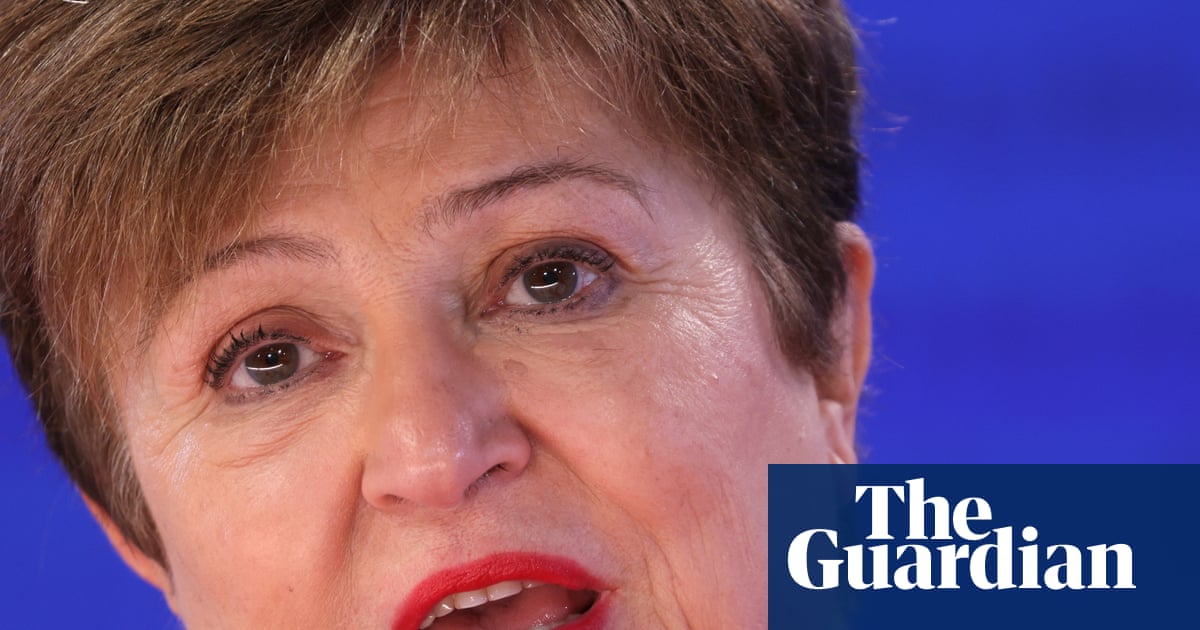The head of the International Monetary Fund has issued a stark warning about the mounting risks facing the global economy, saying: “Buckle up: uncertainty is the new normal.”
As finance ministers and central bankers prepare to meet in Washington for the IMF’s annual meetings next week, its managing director, Kristalina Georgieva said the world economy had shown surprising resilience in the face of Donald Trump’s trade war.
The US is now expected to avoid recession, despite the imposition of historic tariffs on many of its trading partners, and the global economy is forecast to slow “only slightly this year and next”, she said.
But Georgieva pointed to growing signs of strain, including the record gold price – which topped $4,000 an ounce on Wednesday, signalling anxiety among investors – and exceptionally high valuations for US stocks.
“Before anyone heaves a big sigh of relief, please hear this: global resilience has not yet been fully tested. And there are worrying signs the test may come,” she told an audience at the Milken Institute in Washington.
Georgieva suggested the full economic impact of US tariffs “is yet to unfold”, after many firms front loaded exports earlier this year to dodge the levies. “Buckle up: uncertainty is the new normal and it is here to stay,” she warned.
In the last update of its World Economic Outlook in July, the IMF forecast global GDP growth of 3% for this year – a modest slowdown from 3.3% in 2024. It will update its projections at next week’s meetings.
While financial markets have broadly remained calm in the face of policy turmoil, she said this was “masking but not arresting some softening trends”, and warned: “History tells us this sentiment can turn abruptly.”
Share prices in the US have surged to fresh highs in recent weeks, driven by rocketing valuations for the “magnificent seven” tech firms, including chip maker Nvidia and Elon Musk’s electric vehicle-maker Tesla.
Optimism about future productivity gains from generative AI have continued to underpin confidence on Wall Street, despite signs of a slowdown elsewhere, including in the US jobs market.
Drawing a parallel with the dotcom bubble at the turn of the millennium, Georgieva said; “Today’s valuations are heading toward levels we saw during the bullishness about the internet 25 years ago.
“If a sharp correction were to occur, tighter financial conditions could drag down world growth, expose vulnerabilities, and make life especially tough for developing countries.”
after newsletter promotion
The IMF is urging policymakers in large economies to take action to reduce the risks of instability by addressing global imbalances – including calling on the US to tackle its spiralling public sector deficit.
Trump’s tax cuts, targeted at higher earners, are expected to add more than $3tn to US public debt over the next decade – though the US president has hailed tariff revenues as a way of improving the nation’s finances.
Georgieva also called on Beijing to carry out reforms aimed at kickstarting growth and boosting household spending, saying that in China, “private savings are chronically high”.
The Bulgarian economist also offered what she called “tough love”, to “my beloved native Europe”, urging the EU to appoint a “single market tsar”, to accelerate the integration of markets.
“Enough lofty rhetoric on how to lift competitiveness – you know what must be done. It is time for action,” she said. “Remove border frictions in the labour market, goods and services trade, energy and finance. Build a single European financial system. Build an energy union. Complete your project.”
She also highlighted growing public frustration at the economic status quo in some countries, warning: “Many people in many places – especially the young – are taking their disappointment to the streets: from Lima to Rabat, from Paris to Nairobi, and from Kathmandu to Jakarta, all are demanding better opportunity.”


